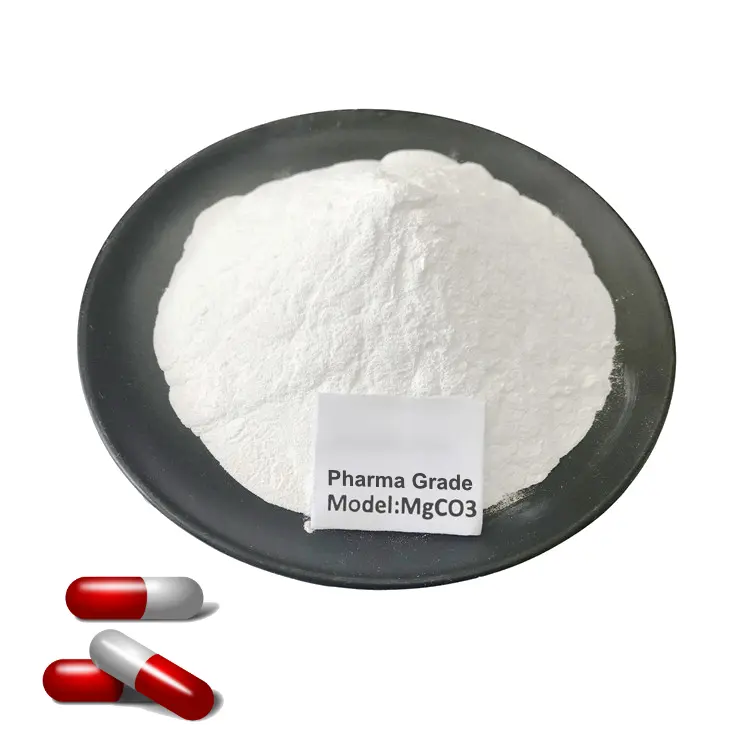Magnesium carbonate is a common compound. In the pharmaceutical industry, pharmaceutical grade magnesium carbonate is used as a drug raw material and preparation ingredient, which can treat many diseases and has made great contributions to the medical field. Next, I will list some common uses of pharmaceutical grade magnesium carbonate.


First, magnesium carbonate acts as an antacid, which can relieve gastrointestinal symptoms. Excessive gastric acid can cause acid reflux, pain, acid corrosion of mucous membranes and other discomfort symptoms. Magnesium carbonate can react with gastric acid to form water and carbon dioxide, thereby neutralizing gastric acid. In addition, magnesium carbonate can also absorb cholesterol and toxins, promote intestinal peristalsis, and relieve symptoms of gastrointestinal discomfort such as constipation.
Second, magnesium carbonate is also used to treat some heart conditions. Heart disease patients may have symptoms such as arrhythmia and angina pectoris, which may cause blood vessels to constrict and aggravate the condition. Magnesium carbonate lowers calcium levels, which reduces vasoconstriction.
In addition, magnesium carbonate contains magnesium and can be used as a magnesium supplement. Magnesium is involved in many metabolic activities in the body, including bone growth, muscle movement and nerve signal transmission, helping to maintain normal body functions.
This shows how important magnesium carbonate is in the pharmaceutical industry. However, it should be noted that magnesium carbonate drugs also have some side effects and use restrictions. For example, magnesium carbonate can interact with certain medications, affecting their effectiveness. At the same time, the application of large doses of magnesium carbonate may cause irritation of the gastrointestinal tract, leading to discomfort symptoms such as diarrhea. Therefore, when using magnesium carbonate medicines, it is necessary to follow the doctor’s advice to avoid adverse reactions.
In the future, Messi Biology‘s magnesium-based scientific research team will continue to explore the properties of magnesium carbonate, contribute to the medical community, and solve problems for patients.

